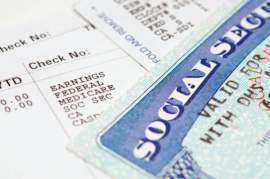
Education and Training Explained

Elder law lawyers become lawyers in the same fashion as other lawyers who specialize in other fields. This is achieved through attending college, law school and passing state requirements in order to practice law. Elder law lawyers choose to specialize in defending the rights of the elderly and creating legislation to ensure those rights are protected.
The choice to become an elder law lawyer is, of course, up to the individual, but the road to becoming an attorney is standard for those who enter that field. Many states, in order for someone to practice, require a degree in law from an accredited school of law as proof of education. These degrees come in several forms: a Bachelor of Laws degree (LL.B.), a Master of Laws degree (LL.M.), and a Doctor of Laws degree (LL.D.).
Each of these listed degrees are in order of their succession; for example, a person must have a Bachelor of Laws degree in order to study for a Master of Law degree. While attending law school, the prospective attorney may choose the specific area of law in which they would like to practice, for instance, elder law. When choosing elder law as a field, the prospective elder law lawyer may take courses regarding that field and his or her focus therein, while still learning about the law as a whole in the United States.
After graduating from law school, if intending elder law lawyers or attorneys in another field wish to practice law, they must pass what is known as a bar examination. This exam, typically a two-day process, tests an individual's knowledge of the law and laws specific to that state. Going back to the purview of elder law, the bar examination is comprised of essays to ensure that the prospective elder law lawyer comprehends the law and is fit to practice in that given state(s).
After "passing the bar", the elder law lawyer can then either start his or her own firm, or seek employment at law firms in that state where he or she is permitted to practice law. For elder law lawyers (and other attorneys as well) that wish to practice law specifically in Illinois, they may seek a 711 License. This license permits law students in the state of Illinois to practice law in a limited capacity as long as three-fifths of credits need to graduate have been completed.
An elder law lawyer can receive specific training for this field through Continuing Legal Education (CLE) programs and through organizations such as the



















